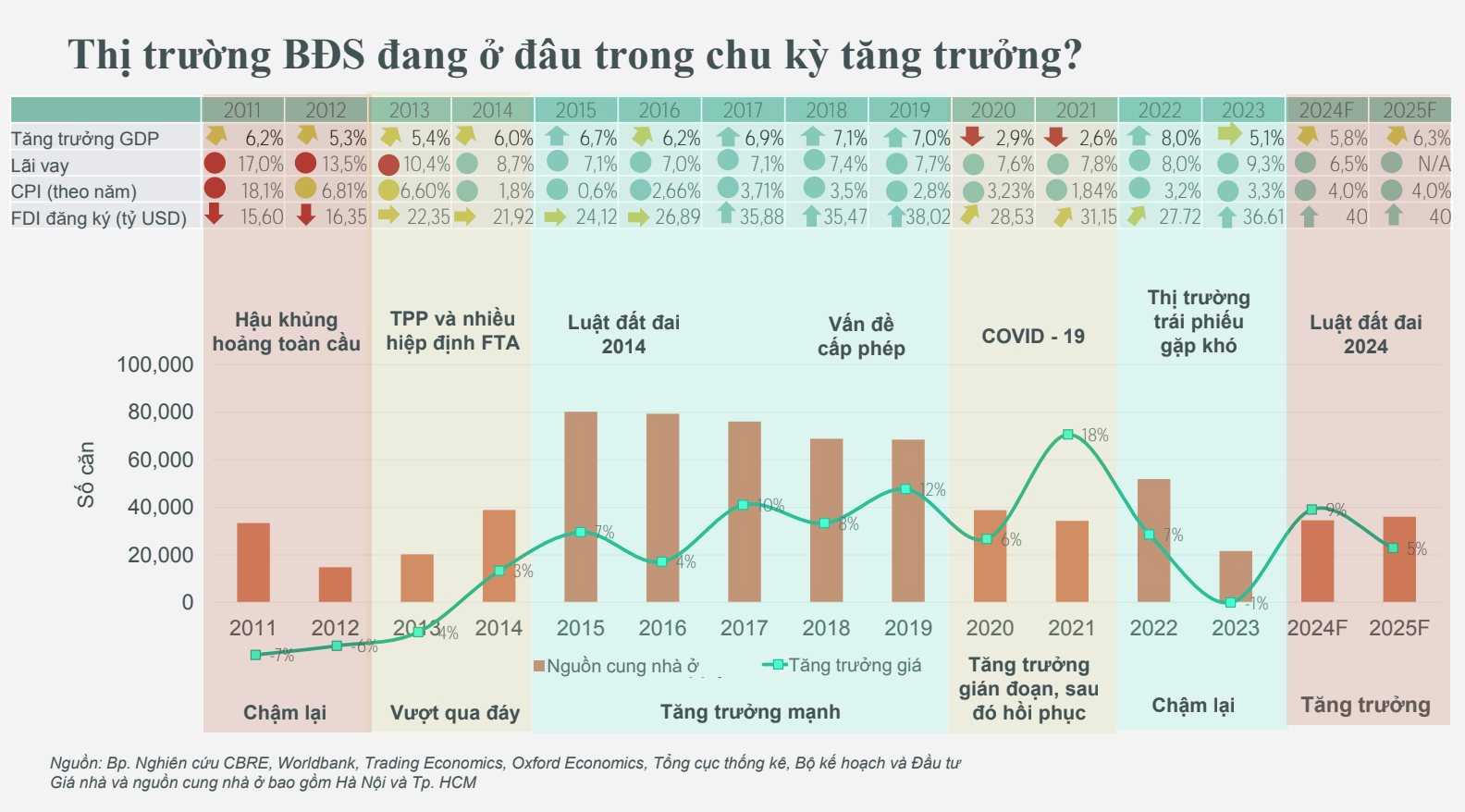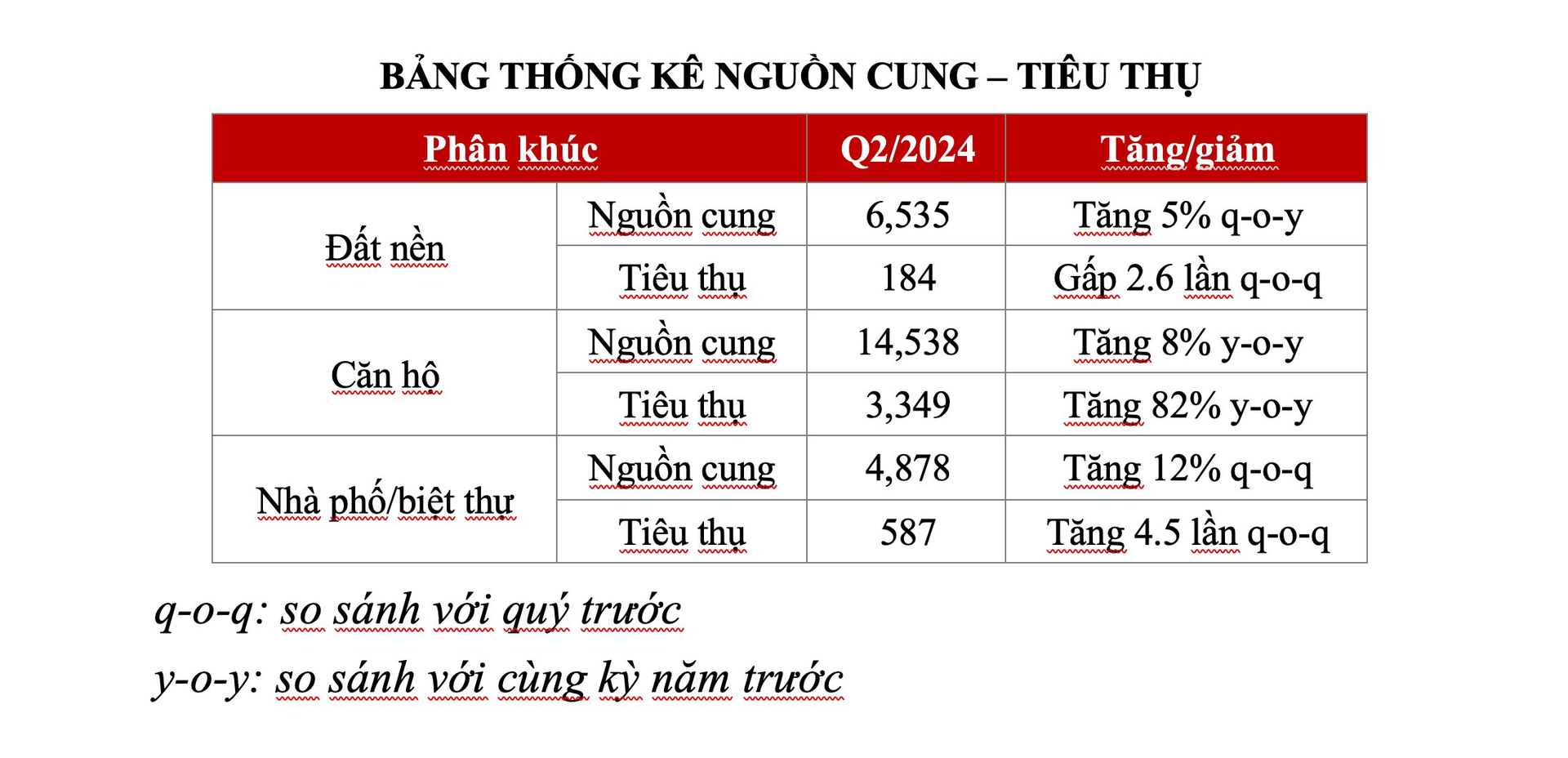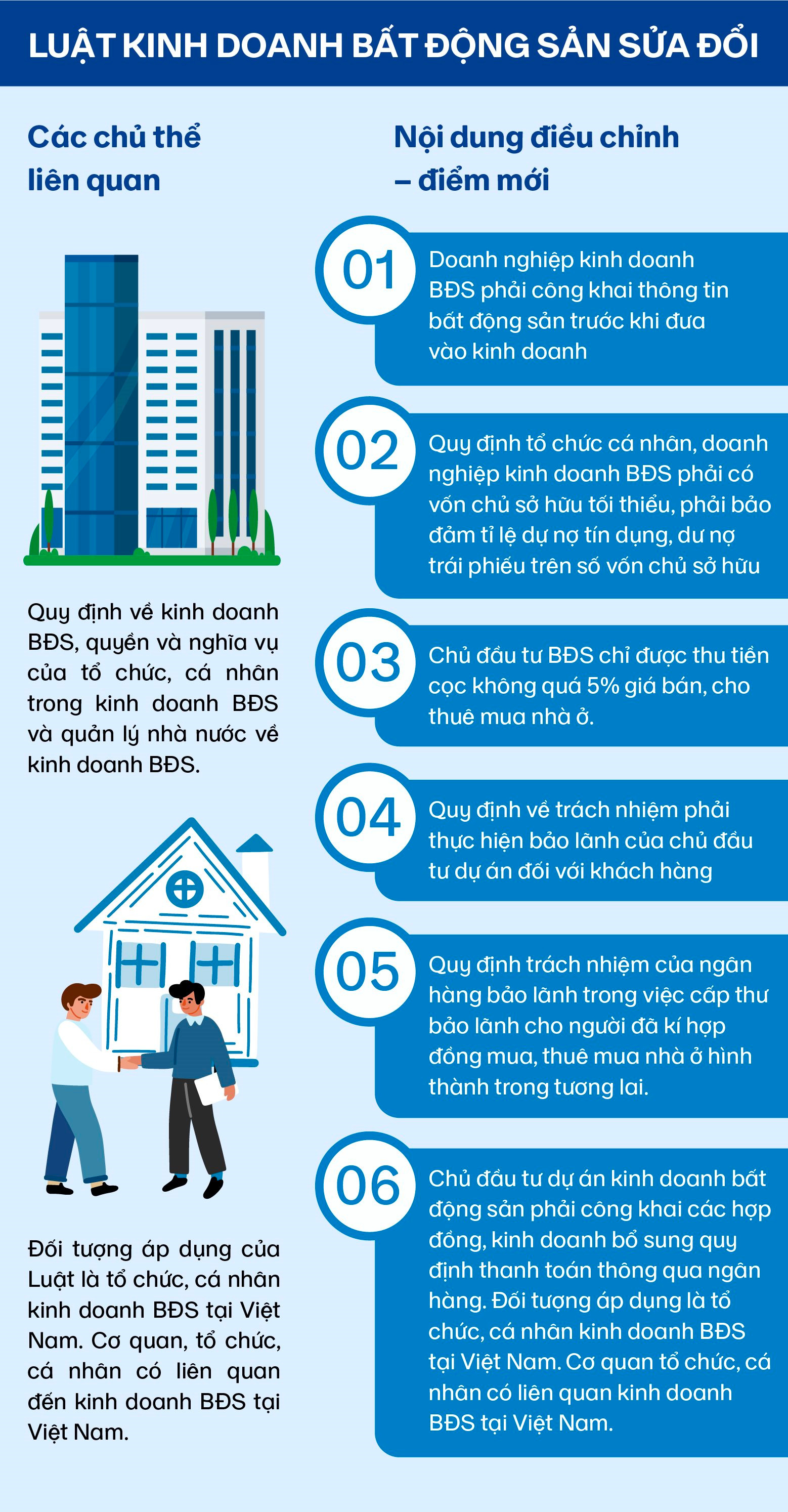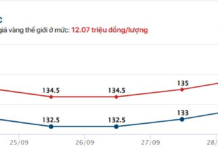Positive Predictions for the Real Estate Market as New Laws Come into Effect
There’s a buzz of anticipation in Vietnam’s real estate sector as the countdown begins for the implementation of three significant laws directly impacting the industry. With just a couple of weeks left, these laws are expected to bring about a much-needed positive shift in the market dynamics.
The laws in question are the Law on Real Estate Business, the Law on Housing, and the Law on Land, and they address key challenges faced by the industry, including legal hurdles related to land use charges, compensation, and the development of social housing. Their early approval, five months ahead of schedule, has sparked optimism for a healthier and more robust real estate cycle.

Forecasted recovery of the real estate market in the period of 2024-2024. Source: CBRE
Recent data from CBRE Vietnam underscores this positive trajectory. In Hanoi, for instance, the number of apartments sold in the first half of 2024 surpassed the total for the whole of 2023. Over 10,000 units were successfully traded, reflecting a fivefold increase compared to the previous quarter and the same period last year. The majority of projects released to the market saw 80-90% of their inventory snapped up.
While Ho Chi Minh City lags in terms of supply and transactions, it’s still noteworthy that apartment sales during the first six months reached 80% of the same period last year. This recovery spans various segments, from mid-range to luxury. Consequently, primary and secondary prices have begun to inch upwards in various projects, brightening the overall real estate landscape heading into the latter part of 2024.
DKRA Group’s latest statistics on real estate supply and consumption further reinforce the narrative of a rebounding market following a period of subdued activity.

Numbers illustrating the upward trend in the real estate market ahead of the laws’ enforcement. Source: DKRA Group.
The collective sentiment in the real estate sector is one of cautious optimism as the market recovers from over a year of stagnant liquidity. The new laws, coupled with more accommodative policies, are expected to usher in a brighter cycle.
High Expectations
It’s understandable that various stakeholders are eagerly anticipating the impact of these new laws, which will come into force on August 1.
Mr. Vo Hong Thang, Director of Consulting & Project Development Services at DKRA Group, recently shared his insights, highlighting four key ways in which the new laws are expected to benefit the market. Firstly, they will address longstanding legal issues related to land use charges, compensation, and the development of social housing.
Secondly, the laws will enhance government control over land parceling and sales, ensuring more efficient and rational land use, curbing speculation, and reducing land wastage.
Thirdly, they will strengthen protections for real estate buyers, including a cap on deposits at 5% of the contract value, mandatory bank transactions for payments, and transparent project information disclosure.
Lastly, the laws will promote market transparency, weeding out developers with weak legal and financial capabilities, thereby reducing the prevalence of stalled or delayed projects.
“From a mid to long-term perspective,” Mr. Thang emphasized, “I believe these laws will serve as a solid foundation for the sustainable development of the market going forward.”

Illustration of how the amended Law on Real Estate Business protects homebuyers and favors financially stable developers. Design: HA
Mr. Vo Huynh Tuan Kiet, Director of Residential Sales at CBRE Vietnam, shares this positive outlook. He asserts that the real estate market is poised for a “handover” phase as the three critical laws take effect. These laws, he explains, will safeguard and enhance the rights and interests of homebuyers while ensuring that only developers with adequate legal and financial capabilities are allowed to enter the market, thus fostering greater transparency.
Additionally, there are hopes that the early enforcement of these laws will expedite the recovery of the real estate sector and, by extension, boost economic growth.

The new laws indeed reflect a concerted effort to address longstanding bottlenecks in the real estate sector, even if they don’t fully meet all stakeholders’ expectations. Industry insiders are confident that their implementation will have a tangible positive impact.
Catalyst for Change, Not a Magic Wand
As expectations mount ahead of the laws’ enforcement, a pertinent question arises: Are these legislative changes the “magic wand” that will transform the real estate sector overnight?
The dynamics of the real estate market in 2024 bear a striking resemblance to those of 2013. Back then, the Land Law was passed and came into effect in July 2014. This was accompanied by a decrease in deposit interest rates to below 7% per annum and the introduction of a VND 30 trillion support package in January 2014. As a result, the real estate market thawed towards the end of 2014 and entered a new growth cycle from 2015 to 2021.
Fast forward to today, and we find ourselves in a similar situation. Interest rates on home loans have dropped to below 10% per annum for fixed rates over two to three years. Moreover, the timely passage of the three critical laws—the Law on Real Estate Business, the Law on Housing, and the Law on Land—has sparked hopes that the infamous 10-year real estate cycle is back, with 2024-2025 marking an upward trajectory.
While the confluence of these factors has heightened expectations, most industry experts caution that these laws are a catalyst and a supportive framework rather than a “magic wand” for the real estate sector.

Mr. Vo Hong Thang, Director of Consulting & Project Development Services, DKRA Group.
Mr. Vo Hong Thang, offering his professional perspective, acknowledges that while the new laws will undoubtedly have a positive impact, there are still challenges to be addressed through the legislative process and the issuance of guiding documents.
For instance, according to the 2024 Land Law, land valuation must adhere to market principles. This could result in higher land use charges for businesses, impacting project profitability and increasing risks for developers, potentially affecting project implementation timelines. Therefore, the guiding documents need to strike a balance that ensures fairness, objectivity, and the alignment of interests among market participants.
Additionally, it’s crucial to avoid using the new laws as an excuse to arbitrarily raise real estate prices. Mr. Thang emphasizes that price movements are influenced by various market variables, including macroeconomic conditions, interest rates, and exchange rates. “I believe,” he says, “that these laws and policies need time to take effect, so we shouldn’t expect significant short-term changes in the market.”
The Deputy Director of the Land Department (Ministry of Natural Resources and Environment) recently confirmed that the decrees and circulars guiding the implementation of the Land Law would be issued concurrently with the law’s enforcement on August 1, 2024. However, no timeline has been provided for the guiding documents pertaining to the other two laws, indicating that their practical implementation may take some time.
This underscores the concerns about the laws’ enforcement and the need for further clarity on certain issues. For instance, there are still questions about how the laws will address land allocation, bidding, and pricing, and whether they will resolve challenges faced by existing projects or only apply to new ones.
Businesses are also apprehensive about the requirement to pay land rent annually. This is particularly concerning for real estate projects in the tourism and resort sector, where it’s challenging to calculate the business cycle, creating difficulties for investors.
Stakeholders unanimously agree that the government should expedite the completion of the decrees and circulars, ensuring that they are of high quality and market-responsive. They also emphasize the need to streamline legal procedures and create a conducive environment for market participants. Additionally, they call for simultaneous solutions to address both demand and supply-side issues and the swift resolution of policy bottlenecks to maintain the market’s recovery momentum.
Furthermore, they urge the government to facilitate access to favorable financing for both businesses and customers/investors, providing a much-needed boost to the market.
At this juncture, the real estate sector eagerly awaits the issuance of practical and market-responsive guiding documents that address the concerns of all market participants. While the new laws may not be a “magic wand,” they are expected to serve as a robust and flexible foundation that fosters consensus and enables a sustainable investment and business environment.
Removing Land Policy Bottlenecks, Creating New Resources for Development
The passing of the Land Law by the National Assembly has been well-received by society, with expectations that policy barriers and bottlenecks will be quickly dismantled and eliminated. This will effectively utilize land resources, contributing to the creation of new resources that will promote socio-economic development…
‘Unusual surge in prices of old apartments’
After years of hard work and saving, many families have accumulated huge sums of money. However, with soaring prices and record low interest rates, buying a home has become a challenging task for many.













































